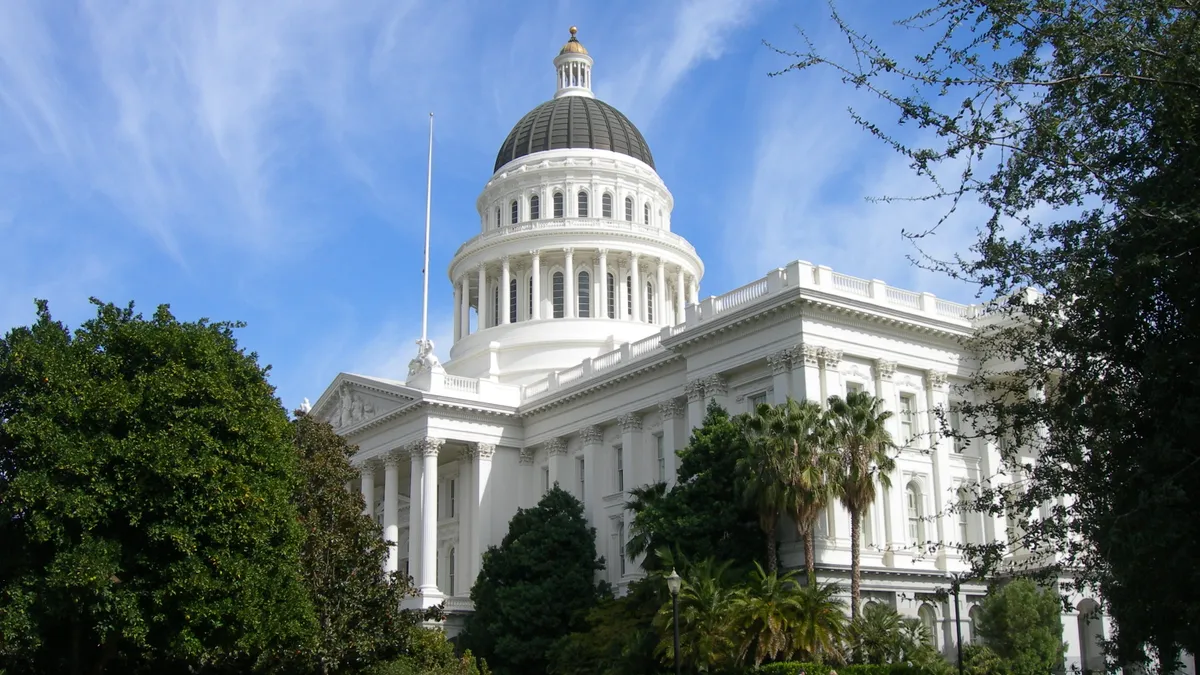Dive Brief:
- A California bill under consideration in the state senate would ban most private employers from seeking a background check into a job candidate’s conviction history.
- If enacted, the Fair Chance Act of 2023 (SB 809) would allow employers to seek a job applicant’s conviction history report only in three circumstances: federal or state law or federal regulation requires an employer to obtain the information; federal or state law prohibits an individual with a particular conviction history from holding the position sought, regardless of whether the conviction has been expunged, sealed or dismissed; or federal or state law prohibits an applicant with that particular conviction from being hired. In addition, SB 809 would prohibit employers from rejecting an applicant because of their conviction history without first conducting an individualized assessment as to whether their conviction history has a “direct and adverse” relationship to the job.
- The bill would also expand the number of employment practices deemed unlawful, including ending an interview, rejecting an application or otherwise terminating the application process based on conviction history information the applicant provides or the employer learns from another source. SB 809’s proposed changes “would more or less upend the ordinary hiring process for just about every employer in California,” Littler attorneys Alice Wang and Rod M. Fliegel wrote in a March 27 post.
Dive Insight:
Fair chance laws seek to reduce the barriers that formerly incarcerated individuals encounter trying to get a job. When these barriers are reduced and individuals with past conviction records are able to find employment, both states and businesses benefit, the California bill explains.
For example, experts have found that California loses $20 billion in state gross domestic product each year due to the many barriers that formerly incarcerated people with felony records must face to be fully employed, the bill notes. Yet, employees with conviction histories have higher retention rates, lower turnover and higher loyalty than the general population, the bill says.
There are other benefits as well. Second-chance hiring lets employers tap into a new talent pool, improve diversity and inclusion and possibly earn a tax credit.
Fair chance hiring also gives individuals with a past conviction a fresh start, as it did with someone from Tennessee. At a half-way house, he learned about Persevere, a not-for-profit organization that provides engineering and coding training to people who have been incarcerated. Through Persevere, he became certified as a full-stack web developer and now works full-time for the organization.
Ban-the-box practices support second-chance hiring by requiring employers to consider a job candidate’s qualifications first, without being influenced by the stigma a conviction may present. But they are limited in what they can do, Persevere’s employment coordinator recently told HR Dive. Employers can still request a criminal background check once they’ve made a conditional offer, he said.
As of 2021, 37 states and more than 150 cities and counties have adopted ban-the-box laws, according to the National Employment Law Project.
This presents a compliance issue for multi-state employers, an attorney previously explained to HR Dive. Although in many states, it’s still lawful to inquire about an applicant’s criminal history, there are a lot of changes at the local level. The attorney recommended that multi-state employers still ban the box and not require the information on a job application. He also suggested they consider not just what the conviction is, but when it happened and the link between the conviction and the position the person has applied for.
California’s proposed Fair Chance Act of 2023 would prohibit all inquiries into an applicant’s conviction history, except under the circumstances listed above. Also, if the applicant is not currently incarcerated, or if the applicant has completed a sentence for the conviction, the bill would create a rebuttable presumption that there is no direct and adverse relationship between the conviction and the job and that the applicant does not pose a public safety risk in ordinary circumstances.
The state senate judiciary committee is scheduled to vote on the bill on April 11.











